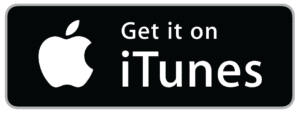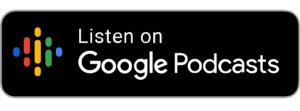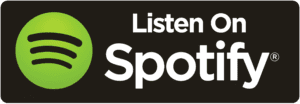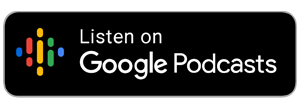Meny Hoffman sits down with podcast producer Chava Shapiro to do a retrospective of some of the best moments of Let's Talk Business Season 2.
Another season has come to a close, so it’s time to look back. Season 2 of Let’s Talk Business was packed with amazing guests who all had some advice to share culled from years of experience in their respective industries. Let’s Talk Business host Meny Hoffman sits down once again with Chava Shapiro, podcast producer and Director of Content at PTEX Group to do a retrospective of some of the best that Let’s Talk Business Season 2 had to offer.
The second of two highlights episodes, there are spectacular soundbites from the likes of Jamie Geller, Jason Swenk, Daniel Gefen, Clate Mask, Zacharia Waxler, Marc Bodner, Isaac Wolman, Mark Levy, Joe Apfelbaum, David Nour, Chester Elton, and Garry Ridge. Get your piping hot and fresh life (and business) advice here now!
Listen to the podcast here:
Download the audio file here. (part 2)
Season 2 Highlights – Part 2
This is part two of season two recap. We’re here to recap all the golden nuggets that we found in season two of the Let’s Talk Business Podcast.
I want to jump right into it with Isaac Wolman. This was a fascinating episode. He’s the CEO of Make It Real. He’s talking about brick-and-mortar business and how retail is changing, all the different trends. I would love to know what you took away. What was your favorite part of Isaac’s episode?
This was a great episode, and one of the things that I love much about this episode is we work with a lot of brands. People know at PTEX Group, this is what we do. We help build brands, specific product brands. A lot of people that build a brand, one of the things they want to know is, when is my brand ready for brick-and-mortar? I want to go into big bucks retail and so on. Isaac is somebody who has a lot of experience. First, he bought off his company and then grown his company and has been able to do it in a fascinating way, building experience, part of the product experience, and building a community outside of the actual product sales. We spoke about what big-box retailers are looking for. One of the things he mentioned is retailers don’t want products. They want companies, which are brands. They want to be able to know that we carried this brand and we have a line of products. Many times, especially sellers, maybe they start selling on Amazon grew that way. They have a bunch of products that don’t have a brand story. They could go to a buyer and tell them, “This is who we are. This is what sets us apart and this is why we want to be part of your lineup of brands.” That was an important, fascinating piece of advice.
[bctt tweet=”Know your numbers. Data is important because data doesn’t lie.” username=””]
We know that retailers are struggling. There is some comeback. You start seeing, everybody spoke about the Toys “R” Us going out of business and all the childhood stories. They opened up two stores. The two stores that they opened up is a different experience. It’s all about the experience, almost engaging with a client and with a shopper. You could buy it in-store, you could buy it online, but they’re opening up those stores to become the way that they deliver an experience to the buyer. If you have a product out there that you could build a community around it, you could build some brand loyalty and that your shoppers, your clients will become loyal to the brand and build around it, that would be a huge advantage when you go seeing one of those buyers.
Let’s go onto Mark Levy. I love him. He is good. He is very inspiring. The way that he talks about finding your purpose, finding your ‘why.’ Why companies don’t differentiate themselves well enough? How to get into that core point of your business? What was your takeaway that from that episode?
Mark was a great episode. For those who saw his name and didn’t connect like, “Who is this person?” this is the person that’s out there teaching and coaching people to find their ‘why.’ If somebody out there is familiar with Simon Sinek and he has this whole book. His talks on TED start with, “Why?” Simon found out why when he was coached by Mark. You get to know the level of people we bring on the show. Mark speaks about the importance of creating the backstory of why you are in business and why you are solving the problem you’re solving. In this episode, it was a deep conversation. The reason is that I grilled Mark and asking him, “What if I don’t have a why?” He explained there’s much you could go and much you could grow without that, especially in the world we live in. He also mentioned to me that he doesn’t make up the ‘why.’ Most of the time, it’s already in yourself, in your business, in your story, but maybe you are not communicating it. By digging in deeper, understanding your ‘why,’ all of a sudden you’re able to bring it to the forefront and that becomes your messaging. That becomes what sets you apart. That becomes something you could take to your next client and ultimately make a business out of.
I recommend reading that episode. I’ll also say that it ties back into many of these episodes because he talks about going back to your story and why you started in the first place. What was it? What’s the backstory and what’s the context? In that, you’ll find a lot of insight into your why. Through this episode, we’ve gotten to the why of many of these other business owners, which is what I love much about the show. Joe Apfelbaum is next up. What a personality. He’s great and energetic. He’s fun to talk to. He focused a lot on LinkedIn, which I thought was interesting. I’m sure you get a lot of questions as someone active on LinkedIn about how to use LinkedIn properly? Should I be on LinkedIn? How much should I post? If you’re one of those people who’s wondering about LinkedIn, definitely read this episode.

First of all, speaking about LinkedIn, if you’re reading this and you don’t follow us on LinkedIn, please make sure to follow me on LinkedIn. It’s Meny Hoffman. Connect to me. A lot of content I put out there exclusively on LinkedIn. This episode was great. As Joe says, “Finding your motivation.” This is his motto. We spoke in this episode a bunch of different pieces of it. He’s a person that lost 90 pounds and the commitment and determination about it. We spoke a lot about LinkedIn because there’s much content out there. Should I be on LinkedIn? Shouldn’t I be on LinkedIn? We spoke about how to do an effective LinkedIn strategy. We spoke about networking versus selling. People do it wrong. The power of LinkedIn, understanding that whatever you’re doing, every day that goes by more people get on the bandwagon of LinkedIn. If you are doing it right and if you are one of the early adopters, you could see a lot of success. We have spoken about what is a good LinkedIn strategy. This was a great episode. It got a lot of LinkedIn comments about it. I advise you that if you don’t know him or if you want motivation, read this episode.
Next up is David Nour. What a story he has. If you want to know a great life story of someone, you should go and read this episode. More importantly, he shared about building relationships, which is important, especially in this age of a lot of shallow interactions happening, social media and how to build a proper relationship for your business. What do you have to say about that one? That was a great episode.
I was excited about this episode because this is somebody I didn’t even know before. I had somebody introducing him and he says, “Meny, you’ve got to have David on the show.” When it comes to somebody that I admire and respect, I right away booked this interview. I don’t remember the exact number. He came with $10 or $1. The way he came as a young child from one of the third world countries and he built himself up. He’s successful in the things he does. What struck me most is he spoke about something. His content is not so mainstream when you speak about understanding deep relationships and authenticity. We spoke about humility and openness. Those are things that are not usually on the A-list of people that in the searching on LinkedIn for content, this is where they are looking for.
He spoke about the understanding that every person could only have a certain amount of relationships. You’ve got to figure out who those people are that you want to be good with. Who are the people that you want to be part of your life? Be intentional about keeping track of where you are with those relationships. What is the next step with that relationship? How do you make sure that you’re there for them so they are there for you? This was an eye-opener episode because it had much real and deep concepts that somehow we don’t realize on day-to-day. He spoke about stuff. Everything was around 1,000 years ago. It’s still effective. This is how human nature and it didn’t change. Media has changed. We have social media, the way people buy change. Our relationship and being open and honest. Those are still the same and people start to forget about it. If you go back to the basics, you can learn much.
[bctt tweet=”Change the leader and you also change the culture.” username=””]
Everything’s changing at a rapid pace. We feel like we have to keep pace with all the new trends, the new apps and all the new things. Getting back to the basics of how to build relationships. That is something that will never change. That was an amazing episode. The next one is Chester Elton. What do you think about him?
He’s another one that I never knew before. David or somebody else recommended that I should speak to him. This was again, a new relationship for us and me personally and for all of you to read. We speak about the importance of how to lead your people to high-performance. Sometimes we’re looking at our team and going for the good. We’re not going for high-performance. He spoke about how it starts with the leader. Change a leader, change a culture. Everything starts with a leader and we spoke about the robustness of culture relies on the leader and the leader leads by example. When the leader is a high-performance leader, he automatically cultivates a culture of high performance. We also went into detail understanding that if you don’t do it that way, how much are you missing out? We spoke about the importance of what it means to a high-performance team because you could see the word high-performance in many different ways. We spoke about high-performance in the culture because there’s growth in those people’s responsibilities. A high-performance is when people believe in what they’re doing. This was a great episode. There is so much there that you have to read it.
Last but not least, everyone’s favorite, Garry Ridge. I know you’ve looked up to him for a long time. He is the CEO of WD-40, which is a well-known company. How often do you get to speak to the leader of a company that is a household name? We’ve had a few of those on the show and he’s one of them. It was a fascinating interview. He had some insightful things. He’s built a company. What did you think about that one?
The funny part is before I get into this interview that he is great friends with Chester Elton. I was able to put the two together. He was speaking about Chester and the book that Chester wrote. I said, “I interviewed Chester.” He said, “You have a good choice.” Garry Ridge is the CEO of WD-40. What is WD-40? It’s found in 8 out of 10 American households. In this episode, I enjoyed it much. First of all, understanding that sometimes you can have this great product. You’re raking in a lot of money and then you forget about your people and the culture. How much that company is focused on culture? He called it a tribe. They have about 500 or 600 employees. He did say that a lot of the work is outsourced, which is the actual manufacturing. He spoke about what is culture? He said. “It’s valued plus behavior times consistency.” A lot of companies have values, but the values are not put into behavioral moments. Even if he does, it’s not a consistent basis. If you have the three, you developed your values, you make sure it’s on everyday behavior and it’s consistent. That’s when you have a great culture. We spoke a lot about that, which was important. We also spoke about the concept of how you look at the growth of a company. In their case, they’re expanding internationally.

That’s where it’s growing. Instead of going wide, which means more products, they call it deep growth instead of wide growth. We spoke about when is a company ready to go wide instead of deep? We spoke about the pros and cons, but ultimately here’s a company that has one single product, has been able to maximize the potential and still growing in different markets. One of the things he shared on the show, which I love, is they wanted to know how else you could use the product. They did some contest and they’ve got 2,000 submissions of people using all weird scenarios. It opened up more markets. If you’re reading this, first, go read the whole episode. Second of all is thinking about your own business. Maybe there’s a service that you’re offering that not everybody’s taking advantage of because they don’t even know that it could benefit them. Figure that out. We closed season two with this episode and it was great. Let us speak about season three coming up.
I want to ask you a question, something I was wondering. We spoke about a common thread throughout season one. Was there a common thread that you saw throughout season two? It wouldn’t be planned since we couldn’t have planned it. Is there something that you feel carried through the whole season for you?
If I have to sum it up and leaders out there need to take out one piece of advice, what are we seeing when we’re reading those? There’s always this tactic, that tactic, focus a little bit more here versus there. To sum it all up, figure out what’s important to you on your business in laser focus and be intentional about it. If you feel you want to grow your culture, you want to be able to have a better environment to your people, to your customers, you’ve got to be intentional about it. If you want to build relationships, you’ve got to be intentional about it. If you want to get your word out and you want to start going on shows, it’s not going to happen. You’ve got to be intentional about it. If I have to find that common theme around all of those episodes, you’ll see that you’ve got to figure out what’s important to you and be intentional in order to see change. If you’re not intentional, it isn’t going to happen.
It takes a lot of strength because you had to have to resist all the shiny objects and all the people telling you what you should do. That’s great advice and true. That wraps up our season two highlights. We do have season three well underway and it’s coming to you soon. We’re excited about it. There are lots of new guests, lots of new topics. It’s going to be a great season. I don’t know if we can reveal any of the guests but I’ll leave that to you.
I want you to read every episode because no matter who the guest is, we vet those guests and we make sure those contents every episode will deliver you value. Some connect better to others, depending on where you are with your business. We have from people that flew covert operations for the US Army to Sharks to CEOs and CMOs. Many ordinary business owners that have built a good business from within the community and out of the community. Please stay tuned in. I would like to thank you again for believing in this show and reading these blogs. If you want to do us a favor and everybody a favor, go to iTunes and Google Play. It takes you two minutes. Rate and review the show. When you do that, first of all, it gives us all the satisfaction that it’s worth our while. Put a good word in as far as what you learned from this. More importantly, it will help us spread the word about the show. The same thing if you are on social media or any other platform, mention it to a friend, mention it to a coworker. The same way you are benefiting from the show, more people could benefit from this. The content is there. It’s free. Why not share the wealth? That wraps up our recap. I’m looking forward to seeing you in season three.
Links Mentioned
- Chava Shapiro
- Podcast@PtexGroup.com
- Kosher Network International
- Jamie Geller – Previous episode
- Jason Swenk – Previous episode
- Agency Playbook
- JasonSwenk.com
- Daniel Gefen – Previous episode
- Can I Pick Your Brain? – Podcast
- Clate Mask – Previous episode
- Keap
- Zacharia Waxler – Previous episode
- Roth & Co
- Marc Bodner – Previous episode
- iTunes – Let’s Talk Business
- Isaac Wolman – Previous episode
- Make It Real
- Mark Levy – Previous episode
- Joe Apfelbaum – Previous episode
- Meny Hoffman – LinkedIn
- David Nour – Previous episode
- Chester Elton – Previous episode
- Garry Ridge – Previous episode
- WD-40








